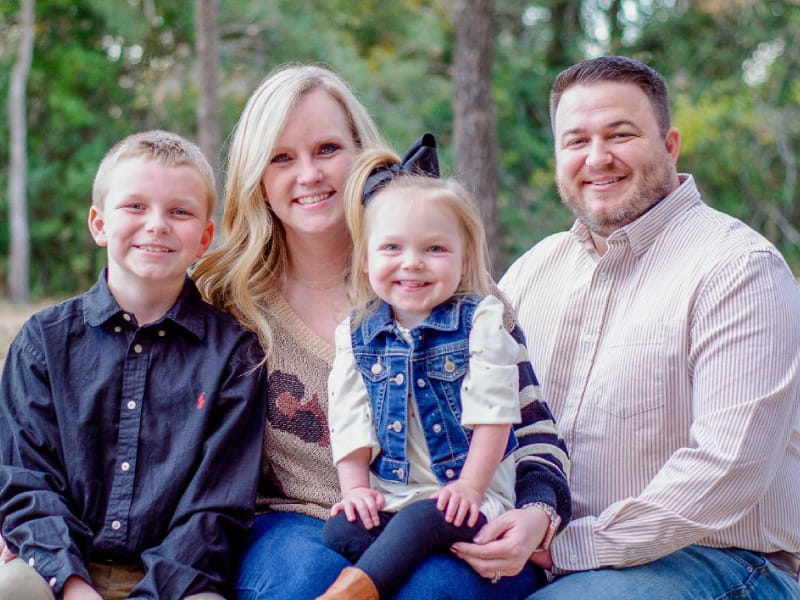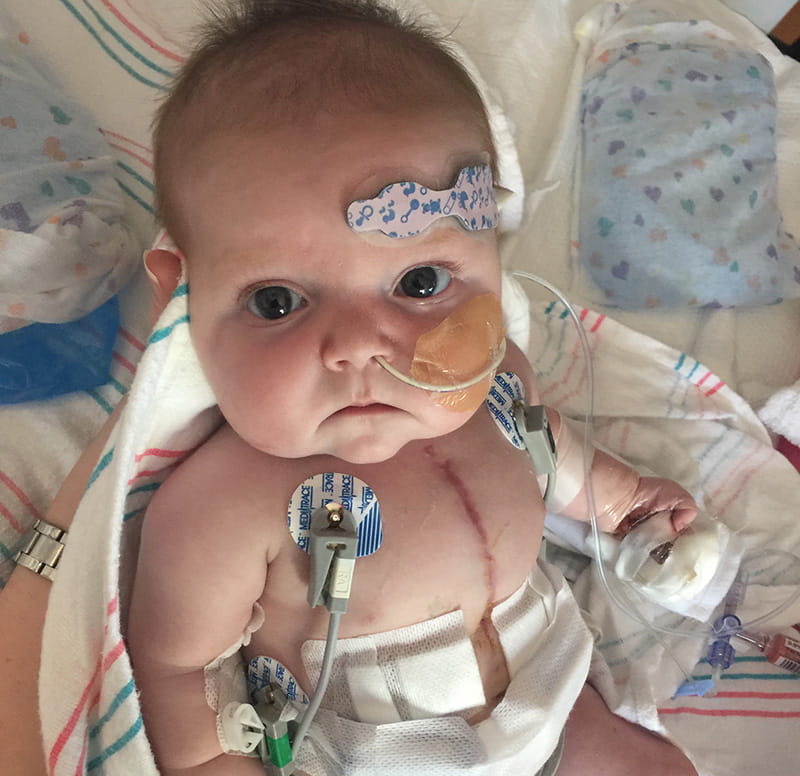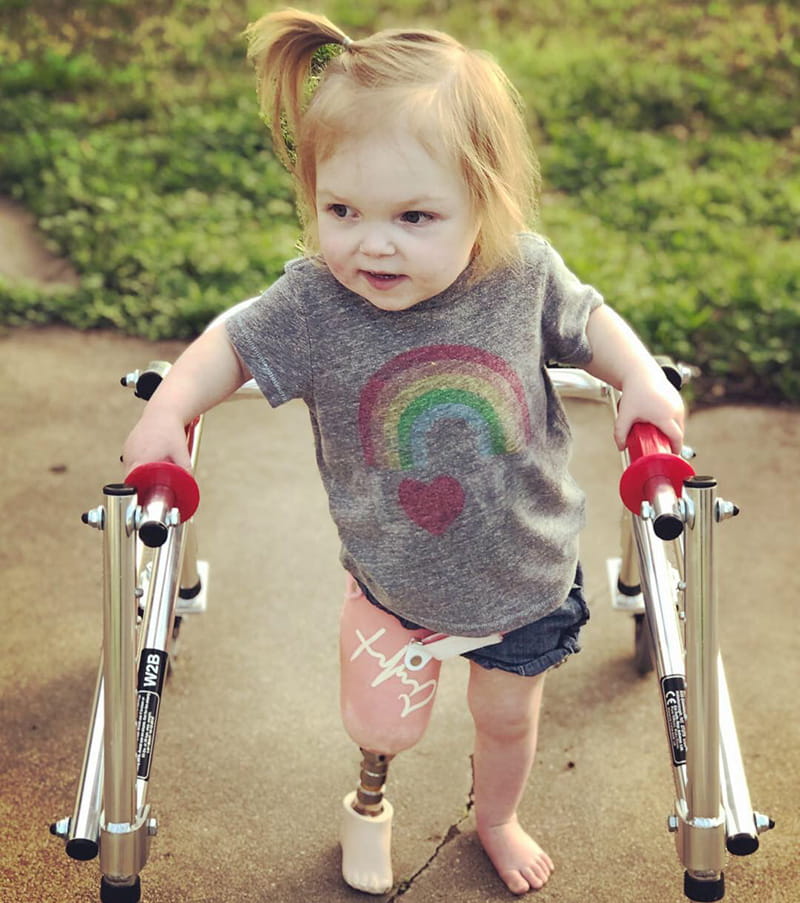Baby survived 27 minutes without a heartbeat
By American Heart Association News

Britt Spivey knew something was wrong when his pregnant wife showed up at his work following what was supposed to be a routine doctor visit. Autumn started to cry and told him their unborn child had a heart defect. They needed to go to Texas Children's Hospital in nearby Houston.
There, a more detailed scan showed the gravity of the situation.
Normally, a heart has two collecting chambers and two pumping chambers. Images showed their daughter, Halle, would be born with only one good pumping chamber. She also had a very small aorta that carried blood out to the body. She would need three surgeries over four years, and they would begin shortly after birth.
"I just wanted to know, 'Is my baby going to be OK?'" Britt said.
Anatomy had been one of Autumn's favorite subjects in high school and college, so she dug into the details and researched what lie ahead.
When Halle arrived, she was full term and looked like a healthy newborn. The couple got to take a few pictures before the medical staff whisked her off to the ICU. At 3 days old, Halle had her first open-heart surgery.
Doctors carefully rebuilt the way the blood comes out of Halle's heart and gets to her body. They also put in a shunt, or small tube, that takes some of the blood going to the body and sends it back to the lungs.
Things progressed well for six weeks until complications led to an emergency surgery and a temporary pacemaker. The second planned surgery happened when she was about 4 months old and weighed 11 pounds. They also gave her a new pacemaker.

Halle had been in the hospital this entire time. Around 5 months old, she was moved to a different floor to begin preparing to go home.
"It was like having a brand new baby," Autumn said.
Everything looked good until four days before Halle's expected discharge. She was fussy, not sleeping and vomiting. An echocardiogram showed she was essentially in heart failure.
Autumn called Britt, who was at home in College Station 90 miles away with their kindergartener, Charlie, and his mom.
"You need to get here," Autumn said, explaining Halle was headed to intensive care.
Britt was racing to the hospital when Autumn called and said the doctor was performing chest compressions. Autumn had been watching through a window, but they pulled her in the room and the doctor said they were going to do compressions for a little bit longer.
"Next thing I hear is, 'Last pulse check,'" Autumn said.
It had been 27 minutes.
"I'm on the phone, leaning over the bed, telling her goodbye, that I love her and how proud I am of her, and I reached over and grabbed her hand and kissed her hand and I heard, 'Get a line in!'" Autumn said.
Halle had a heart rate. It was 183.
"It's the most overwhelming joy and shock and all that rolled up into one," Britt said.
"It feels like I'm talking about some movie," Autumn said, "because in movies people kiss the hand, then wake up. That's not a real-life thing, but that's what totally happened!"
Halle was not out of the woods, though.
The next morning, doctors showed them a new problem. Her right leg was starting to turn black. It was a complication of medicine leaking out from the IV. It caused her blood vessels to constrict and her leg didn't have blood flow for the 27 minutes she was without a heartbeat. Eventually, her leg was amputated through the knee.
Now 3, Halle will need another surgery when she's 4 to help increase the oxygen saturation level of her blood, which is 75% to 85% instead of the normal level of nearly 100%. She takes a baby aspirin, a blood pressure medicine, and that's about it.
"She's just completely normal," Britt said. "She's funny. She has energy. She's spunky. She's got spirit. I really think that's the craziest thing of everything."
Autumn said Halle's amputation doesn't hold her back. It has become a conversation starter Autumn uses to bring awareness to congenital heart defects. "You don't think of kids with heart disease, you think of adults."

The couple is hopeful Halle will live a long and happy life, especially when they hear stories about other survivors, like a woman who recently celebrated her 58th birthday.
"In 20 years, what else are they going to come up with?" Britt said. "Halle may not always get to do the things that other people get to do, but we're going to make the best of it like we have with everything else."
Stories From the Heart chronicles the inspiring journeys of heart disease and stroke survivors, caregivers and advocates.
If you have questions or comments about this story, please email [email protected].





